World Cup Protests In São Paulo Erupt Again
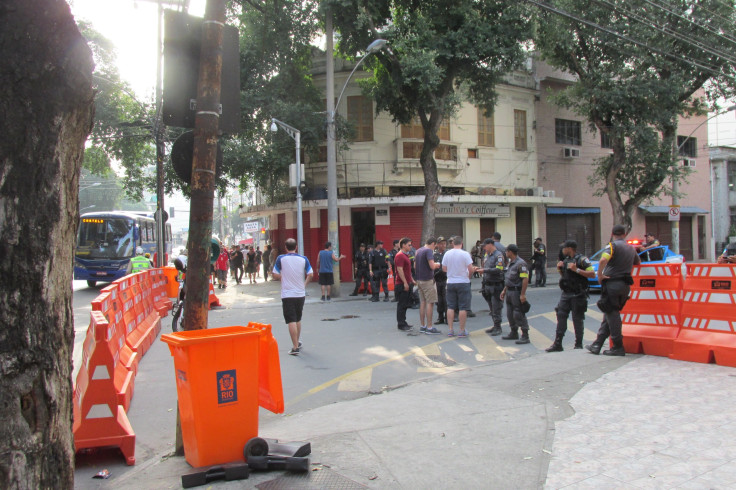
SÃO PAULO, Brazil -- Protests have erupted again here over inequalities related to the World Cup, though, as some activists observed, the soccer championship was in many ways only a catalyst for exposing deep unrest.
The anniversary of the previous march was ostensibly the reason for this one, but as even the protesters noted, the World Cup provided an opportunity to gain attention for their causes, and the public gathering included other groups with other agendas, some of which were unclear.
"Our organizing principle is, 'The Cup, for Whom?'” Vanesa Dos Santos, an organizer with the People's Committee of the Cup and the Free Pass Movement, told International Business Times. “The cup affects various populations, like the mobile vendors who can't go near the stadiums or near Fan Fest. It affects the prostitutes, many of them children, who will be taken advantage of during the Cup. Professionally, I work on social justice issues with Franciscan monks, so coming to participate in this movement is part of my larger work to support my community."
The People's Committee of the Cup was organized three years ago to plan protests during the event.
Although some Free Pass protests have in the past turned violent, this time the military police – known locally as shock troops – kept their distance, moving in only after the protest ended to rout lingering crowds that broke into a Mercedes Benz dealership.
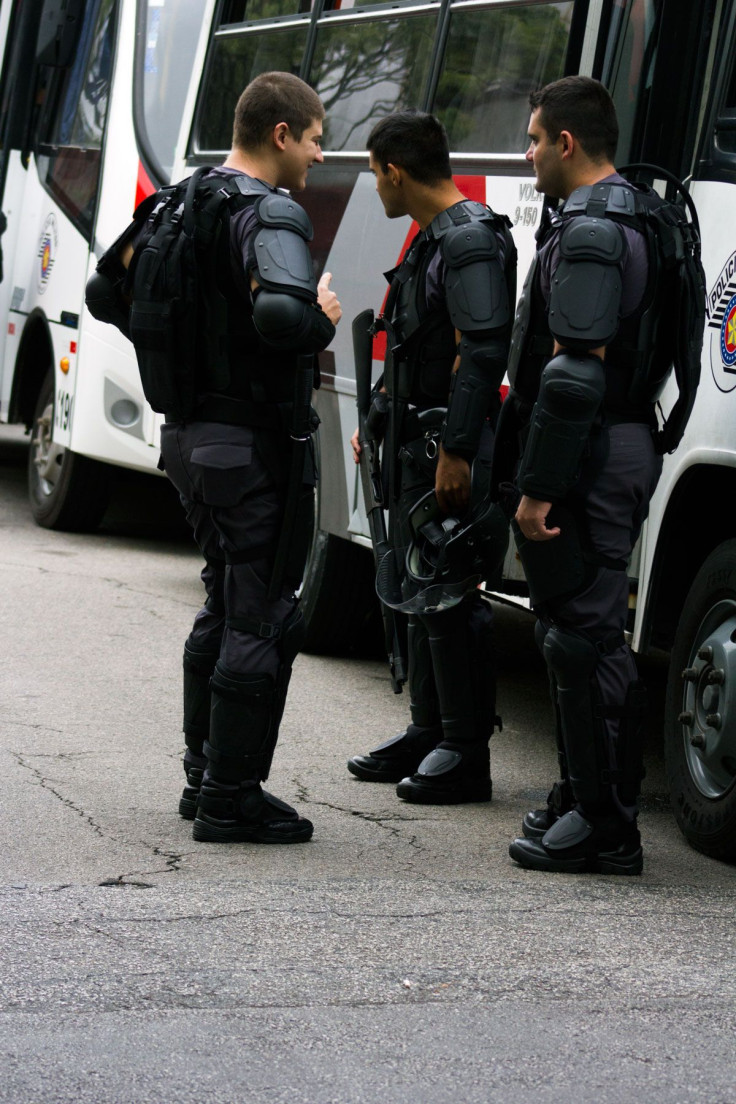
While the more moderate Free Pass protesters advocated for "descatracalização," or “deturnstylization,” other protesters associated with what is known as the Black Bloc burned tires, defaced buildings and vandalized property. The Black Bloc group takes its name from its members’ penchant for wearing dark clothing and covering their faces with masks and handkerchiefs. Whereas the Free Passers are generally considered politically motivated, opponents frequently refer to the Black Bloc as hooligans or criminals.
Black Bloc is actually considered more of a tactic than an official organization, having its origins in what was then known as West Germany in the 1980s. The tactics, which include directly engaging police, often by destroying property, and freeing apprehended protesters, were widely credited for shutting down the 1999 Seattle World Trade Organization talks.
The protesters marched from a communal garden in São Paulo’s banking district toward a retail and residential neighborhood, many carrying signs espousing the group’s anti-fare message. Other signs, banners and effigies displayed by protesters attacked capitalism in general, often using the hammer-and-sickle motif of the communist party. One banner read “Bread, yes, games, no” and two carried effigies of Brazilian media moguls who, the protesters argued, are overly right-wing.
“I never miss a protest,” said José Freitas, 86, who was conspicuous for his age among the crowd of predominately young men and held a Brazilian flag with the words “Corrupt FIFA, Owner of Brazil.”
“Sometimes I think Brazil is under a new, worse kind of dictatorship,” he said.
Another group of protesters marched in support of official delineation and protection of indigenous lands. Its members carried a red banner reading “Demarcation Now,” wore indigenous accessories and carried bows and arrows. The same phrase was displayed by a young activist on São Paulo’s soccer turf at the opening ceremony of the World Cup. The activist, named Werá Jeguaka Mirim, formed part of a delegation meant to represent Brazil’s ethnic diversity, and wrote the phrase on a red soccer scarf that he unfurled during what was intended to be an apolitical event.
As the protesters began to march, the military police who spoke with International Business Times likewise complained of poor pay, lack of air conditioning in their vans and lack of snacks. “All we have is juice boxes and sandwiches,” said one officer who said he is nearing retirement and who declined to give his name.
The shock troops and other military police have been criticized for alleged human rights violations relative to protests that have become commonplace in Brazil and have escalated around the World Cup, including use of unnecessary and excessive force. On June 12, the opening day of the World Cup, officers injured an international journalist with a flash-bang, and were photographed pepper-spraying protesters who were detained and already immobilized.
“June 12th was a barbarous day,” Raul Carvalho Nin Ferreira, a lawyer at the public defender’s office, said, adding that shock troops “threw bombs at people and injured that CNN [reporter]. We were right next to her. When the journalists got together to film the police, they threw a bomb right at the journalists. It was directed at them. It wasn’t like ‘Oh, they happened to be in the way.’ No, it was an intentional act.”
Though shock troops were deployed and on call during Thursday’s protests, for the most part the only police response was to redirect traffic along already congested thoroughfares.
“Hey, what a coincidence, there’s no police and no violence,” a group of protesters chanted during the march. But shortly thereafter, small groups of Black Bloc protesters spray painted walls and smashed glass storefronts of banks.
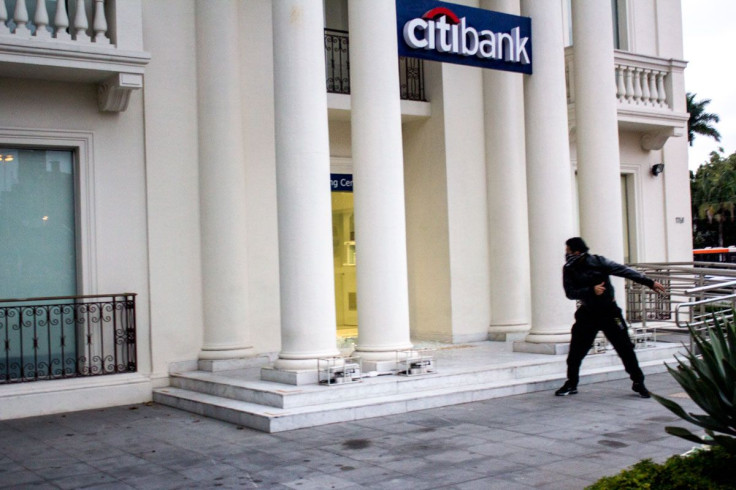
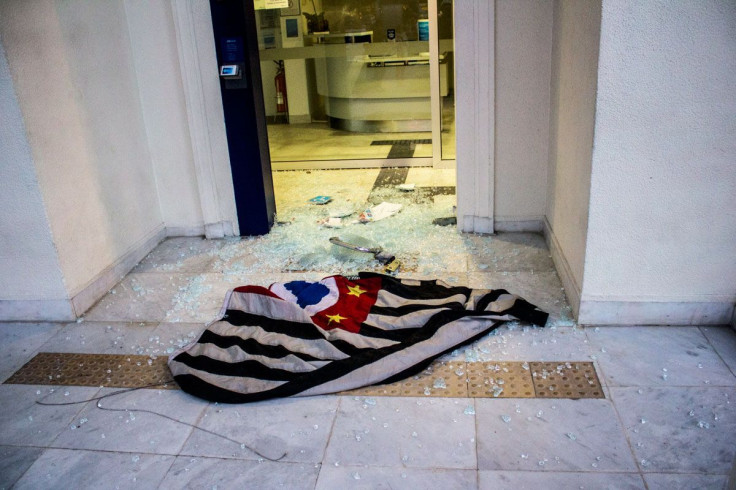
The march ended in the middle of an eight-lane highway near a Mercedes Benz dealership, where groups of young men set two small fires.
On one side of the highway, Free Pass protesters burned cardboard turnstiles and the effigies of media moguls as a crowd of around 800 people gathered around and chanted slogans while a marching band played. As the ashes swirled on the asphalt, organizers formally ended the protests, and most of them left.
On the other side of the highway, masked Black Bloc protesters burned a tire, some trash and planks of wood. As putrid smoke rose from the burning rubbish, which prevented people from gathering around – other than a legion of foreign journalists. After most Free Pass protesters had left, the Black Bloc barricaded both sides of the road using materials scavenged from nearby alleyways.
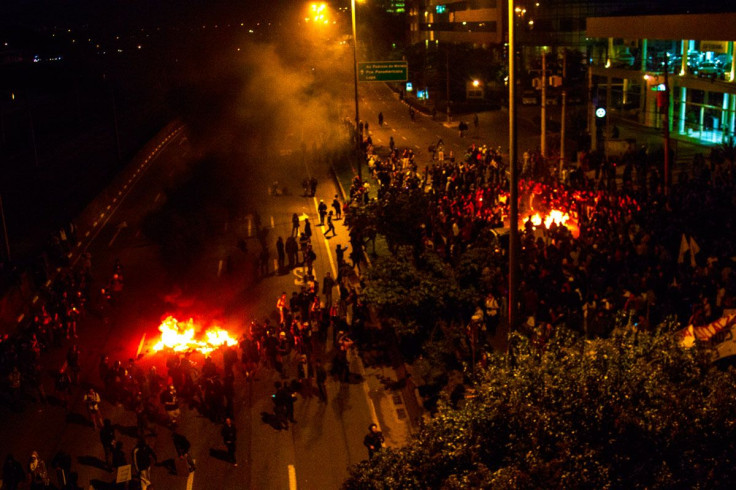
After setting the barricades on fire, about 20 Black Bloc members began throwing stones at the windows of the Mercedes Benz dealership, then broke into the dealership and damaged 10 cars in a showroom, according to Globo, a local television station. By then the shock troops had arrived to disperse them and the peaceful protesters and Public Defender’s officers’ observers had left.
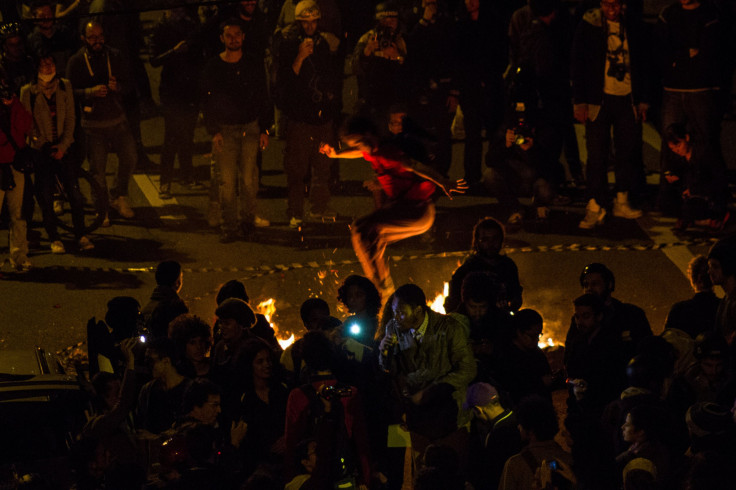
© Copyright IBTimes 2024. All rights reserved.





















